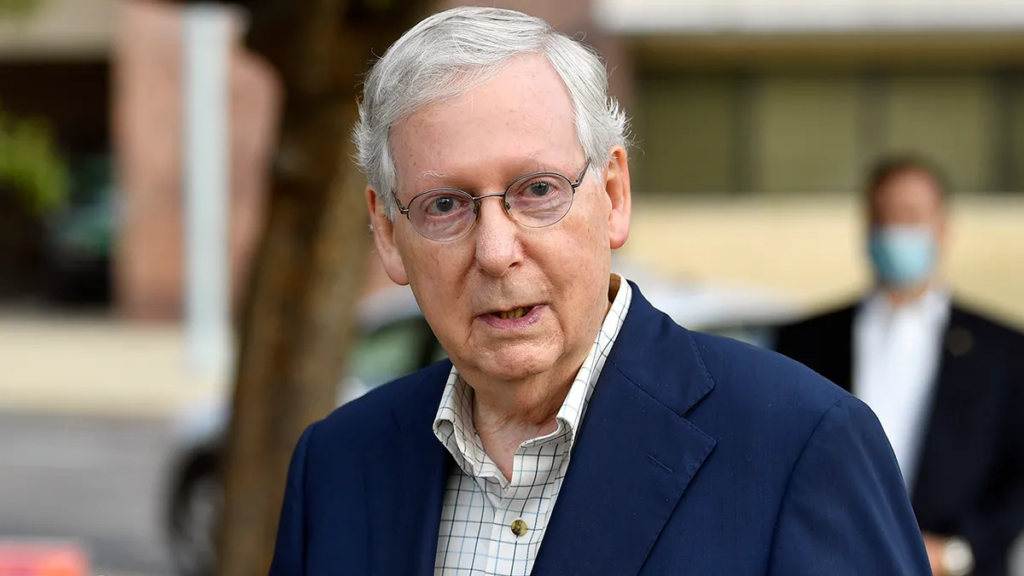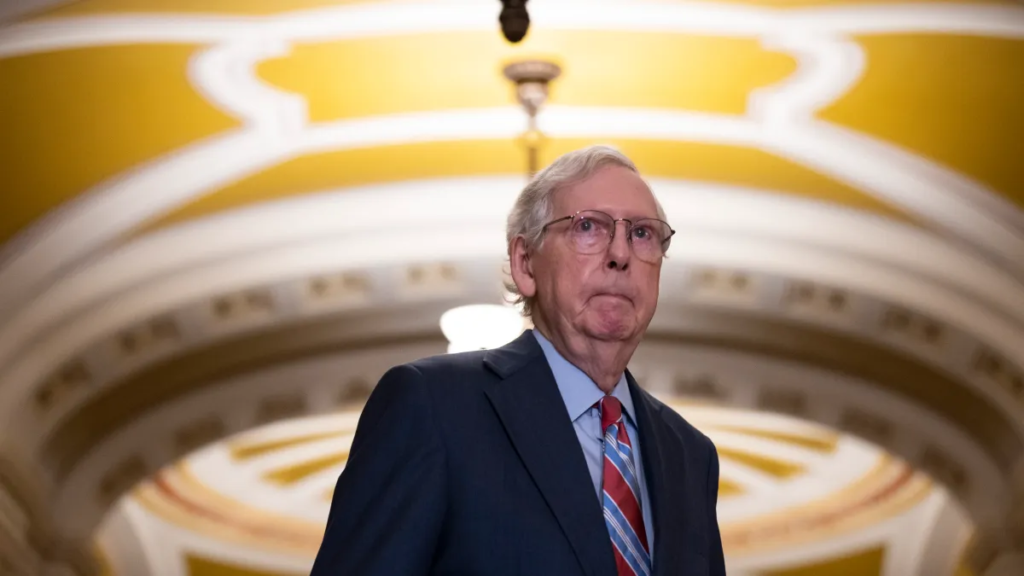Addison Mitchell McConnell Jr., better known as Mitch McConnell, was born on February 20, 1942, in Sheffield, Alabama. Over the course of nearly four decades in the U.S. Senate, McConnell has cemented his place as one of the most enduring and consequential figures in American politics. As a Republican senator from Kentucky, he has served since 1985 and has held leadership positions for more than half his tenure. McConnell is particularly known for his strategic acumen, influence over the judiciary, and ability to navigate the often-contentious political arena of Washington, D.C. His political career reflects a blend of resilience, pragmatism, and a relentless focus on consolidating power.
Early Life: A Foundation of Resilience
Mitch McConnell’s childhood was shaped by both hardship and triumph. At the age of two, he contracted polio, a disease that left his left leg paralyzed. His mother, Julia, provided dedicated care, including physical therapy that allowed McConnell to recover and walk again by the age of four. This experience of overcoming adversity deeply influenced McConnell’s sense of determination and resilience.
McConnell’s family moved frequently during his early years. By 1950, they had settled in Louisville, Kentucky, where McConnell’s father worked in the insurance industry. McConnell attended DuPont Manual High School before pursuing higher education at the University of Louisville, where he earned a Bachelor of Arts in Political Science in 1964. His early leadership was evident as he served as student council president.
After college, McConnell attended the University of Kentucky College of Law, graduating in 1967. While in law school, McConnell gained valuable experience interning for Senator John Sherman Cooper of Kentucky, a Republican who influenced McConnell’s political ideology. This experience set the stage for his future in public service.
Early Political Career: Gaining Ground

Before running for office himself, McConnell held a series of roles that prepared him for a career in politics:
- In the late 1960s, McConnell worked as a legislative assistant to Senator Marlow Cook of Kentucky, further immersing himself in the political workings of Capitol Hill.
- During the early 1970s, he served as the Deputy Assistant Attorney General in the administration of President Gerald Ford.
In 1977, McConnell took his first significant step into electoral politics, becoming the Jefferson County Judge/Executive—a position equivalent to the chief executive of Louisville, Kentucky’s most populous county. This role allowed him to build a local reputation for leadership, set him apart from more polarizing political figures, and prepared him for higher office.
Senate Career: The Rise of a Political Titan

Mitch McConnell was elected to the U.S. Senate in 1984, defeating Democratic incumbent Dee Huddleston in a closely contested race. The victory was driven, in part, by a highly effective advertising campaign that criticized Huddleston’s absenteeism from Senate duties. Since then, McConnell has become an institution in the Senate, winning reelection six times and becoming one of the longest-serving senators in U.S. history.
Leadership Roles:
- Senate Majority Leader (2015–2021): McConnell held this key leadership position during the presidencies of Barack Obama and Donald Trump, overseeing one of the most productive periods of judicial confirmations in modern history.
- Senate Minority Leader (2007–2015, 2021–2024): As minority leader, McConnell acted as the primary opposition to Democratic legislative efforts, often using procedural tools to stymie their progress.
Achievements and Influence:
McConnell’s influence has been particularly felt in three areas:
- Judicial Appointments: McConnell played a central role in reshaping the federal judiciary. Under his leadership, Senate Republicans confirmed three Supreme Court justices during Donald Trump’s presidency—Neil Gorsuch, Brett Kavanaugh, and Amy Coney Barrett—securing a conservative majority on the Court. McConnell’s decision to block President Obama’s nomination of Merrick Garland in 2016 was a landmark moment in U.S. political history, demonstrating his unmatched ability to wield procedural power.
- Tax Reform: McConnell helped shepherd the Tax Cuts and Jobs Act of 2017, a sweeping overhaul of the tax code that remains one of Trump’s signature legislative achievements.
- Opposition Strategy: Often referred to as a “master tactician,” McConnell is known for his skill in unifying his caucus and using Senate rules to block Democratic initiatives, including his opposition to the Affordable Care Act (Obamacare).
Health Challenges: A Cause for Concern

McConnell has faced increasing scrutiny over his health in recent years, following a series of incidents that have raised questions about his physical fitness and ability to lead.
Health History:
- Polio Survivor: McConnell’s childhood experience with polio left him with a noticeable limp, but he has rarely allowed this to hinder his career.
- Shoulder Injury (2019): McConnell fractured his shoulder after falling at home, requiring weeks of recovery.
- Recent Falls: In March 2023, McConnell fell at a private dinner at the Waldorf Astoria hotel in Washington, D.C. He suffered a concussion and a fractured rib, prompting a six-week absence from the Senate.
- In July 2023, he tripped and fell again at Washington National Airport, although his injuries were reportedly minor.
- In February 2025, McConnell suffered two falls in one day—once near the Senate chamber and later during a Republican conference lunch. He was escorted from the Capitol in a wheelchair as a precautionary measure.
These incidents have raised public and political concerns, fueling debates about the age and health of elected officials. Despite his health challenges, McConnell has consistently returned to the Senate, reaffirming his commitment to his leadership role.
Personal Life: A Quiet but Steady Presence
Mitch McConnell has been married twice. His first marriage, to Sherrill Redmon, ended in divorce in 1980. Together, they have three daughters. In 1993, McConnell married Elaine Chao, a Taiwanese-American who served as Secretary of Labor under President George W. Bush and as Secretary of Transportation under President Donald Trump. The couple has been influential in both public and political life.
McConnell’s personal life has largely remained out of the spotlight, but his marriage to Chao has brought scrutiny, particularly regarding her role in Trump’s cabinet and her family’s business connections.
Legacy: A Master Strategist and Polarizing Figure
Mitch McConnell’s legacy is one of power, discipline, and pragmatism. Supporters view him as a brilliant strategist who has advanced conservative priorities and preserved party unity during challenging times. His efforts to reshape the judiciary, in particular, are likely to have a lasting impact for generations.
Critics, however, argue that McConnell’s focus on blocking Democratic initiatives and consolidating Republican power has contributed to the hyperpolarization of American politics. His reluctance to acknowledge Trump’s role in the January 6 Capitol riot, followed by later criticisms of Trump, highlights the complexities of his leadership within a divided GOP.
Despite the controversies, McConnell remains a dominant figure in American politics, with a legacy that will shape the Senate and the Republican Party for decades to come.
Also Read: Bill Maher’s Influence on US Politics: A Critical Analysis






